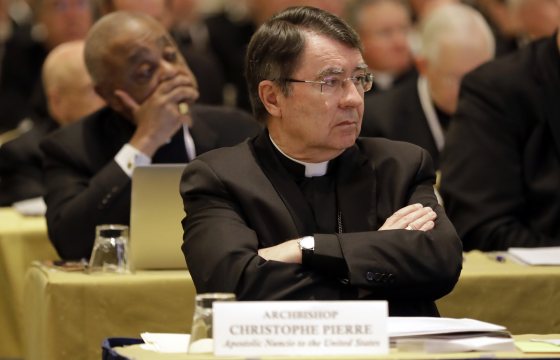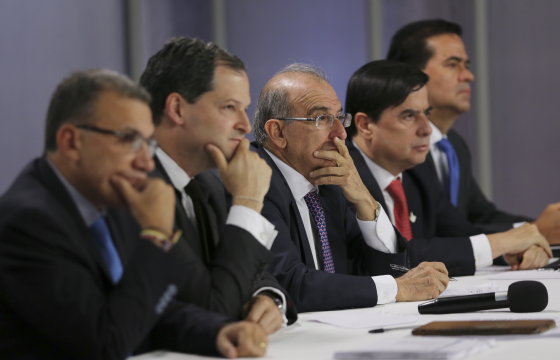The Colombian Government and the nation’s main rebel group have reached a new peace deal to end their longstanding conflict, after voters rejected the original accord last month in a referendum. The changes to the agreement with the Revolution Armed Forces of Colombia (FARC) were announced on 12 November in Havana and addressed a range of topics that had troubled voters.
“We have reached a new final accord to end the armed conflict that integrates changes, precisions and proposals suggested by the most diverse sectors of society,” the two sides said in a statement.
Under the new agreement, Farc commits to declare and hand over all their assets, which will be used for reparations to victims of the conflict, a provision not included in the first accord. Rebels will, however, be allowed to hold positions in public office, despite strong objections from critics. The new agreement is not expected to be put to another referendum, but rather submitted to Congress.
President Juan Manuel Santos defended the issue in a televised speech given at the weekend. “The reason for all peace processes in the world is precisely so that guerrillas leave their arms and can participate in politics legally,” he said.
President Santos’s push to end the war has earned him recognition internationally. He was awarded the Nobel Peace Prize in October.
Despite the prospect of peace being widely popular in Colombia, the original peace deal was rejected by 50.2 per cent of voters last month. Polls had indicated that the measure would be approved by a large margin, and the government had even held a signing ceremony with the rebels the week before.
Following the public's rejection of the deal on 2 October, Catholic bishops were involved in the redrafting of the final agreement and in integrating revisions from 'No' voters. Speaking at a press conference on 4 November, the Columbian bishop's conference president, Luis Augusto Castro Quiroga, said they were taking six issues into account. These concerned the reintegration of child soldiers, gender and family ideology, reconciliation, transitional justice, reparations for victims and the agreement's incorporation into the constitution.
Both evangelical Christian and Catholic voters are reported to have joined the 'No' campaign, in order to express their concerns over the government’s increasingly socially liberal agenda, reports Ideas for Peace Foundation, a research group in Colombia.
Colombia’s Government legalised same-sex marriage in April of this year and pushed to lift the abortion ban following the spread of the Zika virus.
“The opposition used that argument regarding gay marriage, abortion, religion to attract and rally against the peace accords,” Juan Carlos Garzón, a researcher at the Ideas for Peace Foundation told the New York Times. “It was an effective strategy to drive the most conservative voters against the peace agreement.”
Two days after the vote, President Santos took his negotiators to meet with a large group of evangelical Christian pastors to discuss their concerns, reports the Guardian.
The Vatican Secretary of State, Cardinal Pietro Parolin, said during a Liturgy of the Word in Cartagena to mark the signing of the original agreement in August, that religious institutions were vital for the peace of the nation.
“Religions lead to listening, to understanding and to recognising the reasons for and the value of the other,” Cardinal Parolin said. He continued saying, “secularism has need of faith as a necessary reference point for coexistence and for respect.”
“The Catholic Church, in particular, promotes peaceful social coexistence, in accordance with the spiritual tradition of the people of Colombia, without claiming that all belong to the same religious confession.” It offers points of reference so that individuals and communities are able to find and illuminate the common good,” he concluded.
PICTURE - Humberto de La Calle, head of Colombia's government peace negotiation team, centre, sits with Colombia's Peace Commissioner Sergio Jaramillo, second from left, Senator Roy Barreras, far left, Colombia's Interior Minister Juan Fernando Cristo, second from right, and team negotiator Frank Pearl, far right, during a press conference to explain the changes in a new peace accord, at the presidential palace in Bogota, Colombia, Tuesday




 Loading ...
Loading ...